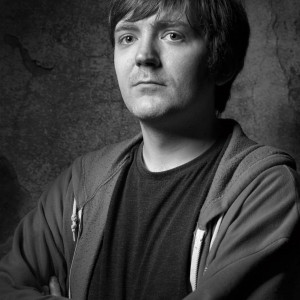What tools do you use to stay productive?
Interview with Vaishali, a content marketer and a productivity tool expert
Time Doctor: I used to freelance before joining Time Doctor. However, I never used any productivity tools then. I was reluctant to use Time Doctor when I joined this company. Eventually, I found out that I was wasting so much time even on a short coffee break. So Time Doctor has proved to be a great productivity and time management tool for me.
Slack: Many believe that Slack is a productivity killer, but for me, it is an app that makes me work faster. I can set reminders, share docs with my co-workers, and take surveys and easy polls.
I also use various online collaboration tools like Google Docs, Skype and a few others to work efficiently. On the marketing tech side, I use apps like Buzzstream, Ahrefs, LinkedIn and Quuu which enable me to be productive.
Vaishali persevered until she found the right remote work job for her lifestyle—check out how she uses productivity tools and time management strategies to stay productive.
Read full interview from Interview with Vaishali, a content marketer and a productivity tool expert.
Interview with Dane, a freelance writer and author with 7 published books
As far as freelancing sites go, I use Upwork and PeoplePerHour. I also have a website and my portfolio is on SlideShare, which helps to give it a little extra exposure. And I sometimes get leads through my social media presences as well, predominantly from LinkedIn and Twitter.
Other tools that I use quite a lot include Dropbox and Google Docs for storing and sharing files, Slack and Skype for communication and occasionally Trello for project management.
I spend a lot of time in WordPress admin panels as well. But it really depends upon the client, and I’m generally quite flexible about what I use. All I actually need to write copy is Microsoft Word to write it in and Google Chrome to carry out a little research and to find sources.
Dane is a freelance writer and author who works remotely, and balances client work with writing his own books.
Read full interview from Interview with Dane, a freelance writer and author with 7 published books.
Interview with Tyler, a director of customer success models how to start a remote work career
Physical hardware:
- Lots of screen space (27" iMac + 24" second screen);
- a studio headset and microphone plugged into a powered USB audio interface;
- a great webcam;
- and noise-canceling headphones for when others are in the house or when I'm traveling.
I can't say enough about taking charge of your environment and schedule.
As a customer-facing people leader, I highly recommend investing in your A/V setup. Every penny has been worth it for the increased bandwidth on video and audio calls.
Software tools: I have a typical stack.
Internal comms:
External comms:
- Calendly for scheduling;
- Zoom for calls;
- Gmail for email.
We use GSuite for internal documents, and our external knowledge base is built using WordPress.
Hubstaff runs on Hubstaff, so we track our time using our tool, and I really love Hubstaff Tasks for managing projects. Hubstaff Tasks is exactly what you would expect from a PM tool: project boards and task cards.
However, Tasks has an Agile layer of standups, sprints, epics, timelines, etc. that make it really great to break big tasks down into manageable chunks that really move the needle in a flexible and adaptable way. I've been exploring lots of other tools, but that's the core.
From networking to land a remote work gig, to building out an exceptional remote work tool stack, Tyler has quickly figured out how to thrive in remote work. See his tips for starting strong.
Read full interview from Interview with Tyler, a director of customer success models how to start a remote work career.
Interview with Melissa, a co-founder and remote work champion
This has always been a challenge for me even before I started working remotely. I've purchased every brand of planner and platform there is.
Where I'm at now is a very simple Excel spreadsheet shared with my business partner in Google Drive.
We have three columns, my to-do's, her to-do's, and our "middle of night thoughts." The third column is critical for me because sometimes you don't know where to start with an idea so I just need to put it down in a list and then divvy it into actionable tasks at another time.
This works now because we are two people. As we grow, we will go back to using either Monday.com or Dubsado. For us, it wasn't worth the cost until we had more people's time to manage.
Another method I use is to chunk out the workday. I give myself deadlines because sometimes I can spend too much time on one thing. So I'll say, "You can work on that web site copy for 30 more minutes only."
If I don't pay attention to the clock I'll get lost in it and not get other tasks done.
I even have a penguin-shaped egg timer that I stole from my daughter. I know, very high tech over here!
Melissa started Work Well Wherever to help individuals & companies embrace remote work—see how she balances entrepreneurship, parenthood, & self-care.
Read full interview from Interview with Melissa, a co-founder and remote work champion.
Interview with Marian, a nomadic social media manager and day trader
I don’t use any paid tools; I use popular ones, like Google Calendar, and Google Drive, which includes the sheet and document features. They are very useful, and I recommend it for new digital nomads/remote workers.
Day trading & virtual assisting has allowed Marian to see the world—in this interview, she lays out her routine and priorities for those thinking of traveling while working.
Read full interview from Interview with Marian, a nomadic social media manager and day trader.
Interview with Patric, a UX designer and usability engineer that works from home
I use Gmail and Skype or Hangouts for communication.
My projects and tasks are in Trello where I try to document every activity I do (Why?)
I had days where I could not remember what I actually got done in the last hours so for my own sanity I "log" almost everything...
Lately I started to use Dropbox Paper to structure my thoughts on projects. I really came to like it if you keep the documents as short as possible. I also had a good experience collaborating in Paper on the launch for Indie Ignitor - where I worked together with a partner for the first time.
I tried RescueTime - but it is not really useful if your days task vary and you cant compare them.
I had good experience blocking Facebook, Twitter and the likes to avoid "waking up in a social feed" from time to time.
Patric works on his own projects while also consulting for medium sized software companies, learn how he works remotely.
Read full interview from Interview with Patric, a UX designer and usability engineer that works from home.
Interview with Vivek, an entrepreneur building a virtual office for remote teams
RescueTime - a Desktop app that passively monitors the websites that you visit and gives analytics assessing how productive you've been for that week.
The first step to improving your productivity is acknowledging where you stand.
Be Focused - a Desktop app that sets alarms on a 30-minute cadence to remind you to take breaks. The app roughly follows the Pomodoro time management technique.
Asana - Project management website for organizing your tasks and tracking project completion
Pragli - (as described above) a Desktop app that provides a virtual office for your remote team. We use the product every day to facilitate quick audio/video communication and for team presence.
Calendly - Scheduling software that eliminates the painful back-and-forth of email scheduling. You just send a Calendly link to expose the times in your calendar that you're free. After using the product, I've reclaimed hours of time for coding and marketing.
The long San Francisco commute sent Vivek into remote work—hear about his three strategies for eliminating distractions & his must-have tools.
Read full interview from Interview with Vivek, an entrepreneur building a virtual office for remote teams.
Interview with Alaina, a nonprofit program state director
I like to keep it old school with written to-do notes in a notebook.
Something about physically writing tasks and adding sub-notes or crossing out completed tasks on paper is more gratifying than typing it up on the computer.
A very simple tool I use in my Gmail is the starred email feature. In Gmail settings, there is an option to have different color stars or markings like the red and yellow exclamation points. I use those stars to sort my inbox and keep track of emails I need to follow-up on.
If I have a task that is time sensitive, I will create a task on my calendar.
A habit I use to employ and need to get back to is time blocking my day on my calendar with events and using my Google Calendar as an extension of my to-do list. This method is also helpful for getting a visual layout of tasks for the day and seeing where your time is spent.
It takes a minute to find your rhythm in a new remote position—hear how Alaina organizes her time to hit the ground running in a new remote work job.
Read full interview from Interview with Alaina, a nonprofit program state director.
Interview with Michelle, an organizer of digital nomad experiences
I use Trello, Click up, and Google Calendar for daily tasks.
“Until we can manage time, we can manage nothing else.” - Peter Drucker, management consultant
A solo backpacking trip led to Michelle organizing co-travel experiences for digital nomads—hear how she manages working while traveling.
Read full interview from Interview with Michelle, an organizer of digital nomad experiences.
Interview with Taylor, a marketing director and intentional digital nomad
I used to be an avid Pomodoro tracker, but at this point, I'm so used to being productive in a work environment that I don't really need productivity tricks.
I just use my intuition and listen to when my mind can get things done and when it needs a break.
In terms of software, I love Asana and 15five. These tools are also part of Tortuga's project and goal management stack. Both are vital for mapping out my weekly tasks.
Taylor shares how co-working spaces, digital nomadism, and work flexibility gave her the work environment she always wanted.
Read full interview from Interview with Taylor, a marketing director and intentional digital nomad.








